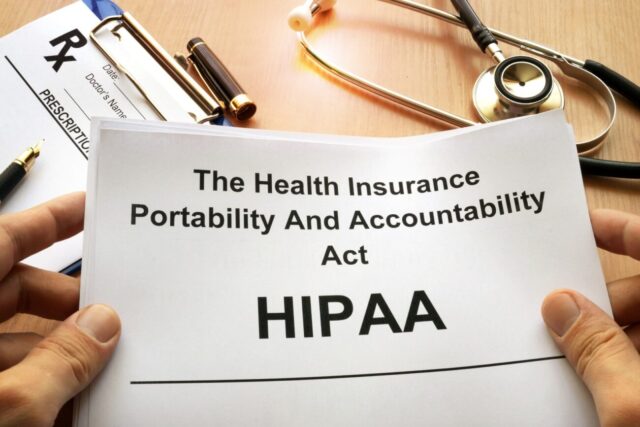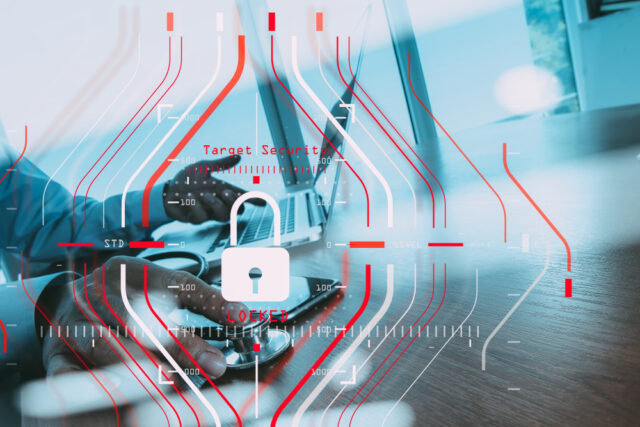
The Health Insurance Portability and Accountability Act of 1996 (HIPAA) was enacted to protect patients’ health information privacy. The HIPAA Privacy Rule establishes national standards for safeguarding personally identifiable health information. In order to comply with HIPAA, businesses must ensure that their employees understand the requirements of the law and how to protect patient information.
While the primary goal of the laws is to protect patient privacy, they also create certain obligations for businesses. This includes providing HIPAA and Privacy Act training to staff on compliance. Companies must also develop policies and procedures to ensure they follow the rules.
The HIPAA and Privacy Rule comprise several “do’s” and “don’ts” that businesses must be aware of to ensure compliance.
Do: Provide Ongoing Training
HIPAA and Privacy Act training should not be a one-time event. Employees must receive regular refresher courses on both laws as new regulations are implemented, and existing regulations are modified.
Don’t: Skimp on Training
Proper HIPAA and Privacy Act training is necessary for any business handling patient data. It is important to ensure that the training provided is comprehensive enough to cover all aspects of the laws and is updated regularly as new information becomes available. Skimping on training can result in serious fines and penalties.

Do: Implement Safeguards
To ensure that all sensitive information is handled properly, it is important to implement safeguards such as password protection, encryption, and two-factor authentication for any systems that store or transmit data.
Don’t: Rely on Manual Processes
Manual processes are still widely used in the healthcare industry, but relying solely on them can be dangerous. In this digital age, manual processes can introduce a number of risks and make it difficult to maintain HIPAA and Privacy Act compliance. Instead, businesses should opt for automated solutions that provide greater control over data access and storage.
Do: Establish Rules and Procedures
In order to ensure that your organization follows all HIPAA and Privacy Act regulations, it is important to establish rules and procedures for handling patient data. These rules should address the proper use of information system security measures, how patient data can be used, who has access to the data, how long it must be stored and how it should be disposed of.
Don’t: Overlook Security Measures
It is important not to overlook the security measures required by HIPAA and Privacy Act regulations. All patient data should be encrypted, passwords must meet certain standards, access control procedures must be followed, and all employees accessing the data must have specific authorization. Failure to adhere to security measures could result in penalties or fines.

Do: Implement Sanctions for Violations
There must be appropriate sanctions for employees who violate HIPAA and Privacy Act regulations. These sanctions should be clearly defined so that all employees know what will happen if they do not follow the regulations. The sanctions should also be enforced consistently to ensure all employees are held accountable for their actions.
Don’t: Ignore the Penalties and Fines
The penalties and fines associated with violations of HIPAA and Privacy Act regulations can be severe. All organizations must take these potential risks seriously and ensure that they have taken all steps necessary to comply with the laws. Ignoring potential fines can lead to expensive and time-consuming legal action, which could harm your business’s reputation and bottom line.
Do: Provide Regular Audits and Reviews
It is important to perform regular audits of employee activities to ensure that all HIPAA and Privacy Act regulations are followed. Regular reviews of the organization’s security measures and procedures should also be conducted to ensure they are up-to-date and effective.
Don’t: Assume All Employees Are Compliant
It is important to remember that not all employees may understand or comply with HIPAA and Privacy Act regulations. It is essential that all employees receive proper training and that they understand the regulations fully. It is also important to provide ongoing support and guidance to ensure that all employees follow the rules.

Do: Securely Store Data
All patient data should be encrypted, ensuring only authorized personnel can access the information. It is also important to have a secure backup system in place to protect against any potential data loss or corruption.
Don’t: Leave Records Unattended
Any physical records containing personal health information should be locked away or securely stored when not in use. Additionally, all paper records should be shredded or destroyed when no longer needed to prevent unauthorized access.
Don’t: Share Information with Unauthorized Persons
All patient information is confidential and should only be shared with those who have a legitimate need for it. In particular, patients should be asked for their explicit permission before any information is shared with third parties. Even then, only the minimum necessary information should be disclosed.
Do: Maintain Physical Security
Physical security should always be maintained to keep patient information safe and secure. All medical records and other documents that contain sensitive personal information should be stored in a secure location, preferably with restricted access granted only to authorized personnel.

Don’t: Disclose More Information Than Necessary
When providing patient information to a third party, it is important to release minimal necessary information. Any unnecessary data should not be disclosed and should remain confidential. It is also important to remember that some states have laws regarding what information can and cannot be disclosed.
Do: Follow State Regulations
In addition to HIPAA, each state has its own regulations regarding the privacy of medical records and the disclosure of patient information. Healthcare providers must familiarize themselves with their state’s laws to ensure compliance. Failure to do so could result in penalties or even criminal charges.
Don’t: Disregard the Privacy Act
The Privacy Act of 1974 outlines the federal government’s policies on collecting, storing, and sharing personal information. Healthcare providers must adhere to these guidelines to remain compliant with HIPAA regulations. For example, patients should always be given access to their health records, and any information the government collects must be kept safe and secure.
By following the Do’s and Don’ts of HIPAA and Privacy Act compliance, healthcare providers can ensure that patient data is kept safe, secure, and private at all times. Additionally, this will help protect patients from identity theft or other malicious activities. Healthcare providers must stay up-to-date on current regulations and invest in security technologies to ensure the utmost protection of their patient data.







